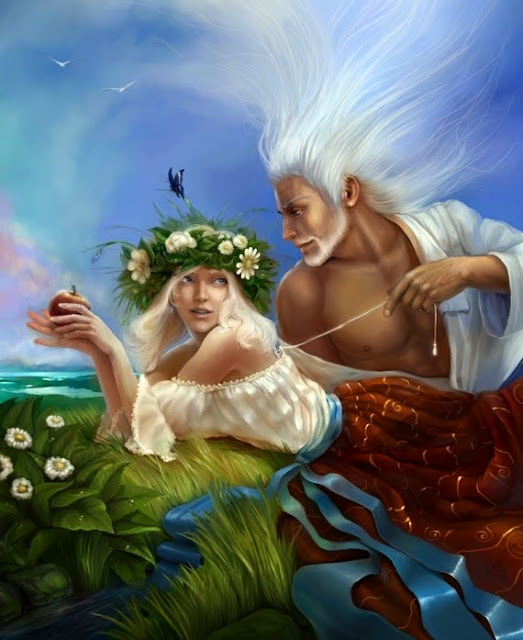Uranus was Father Sky, the Ancient Greek personification of the heavens and, for a while, the ruler of the known universe. Fatherless, he was conceived by Gaea alone, with whom he formed the primordial couple, thus becoming an ancestor of almost all Greek gods. However, he was a cruel husband, and he didn’t allow any of his children to leave the womb of their mother, which eventually led to a rebellion and his demise at the hands of his son, Cronus.
Uranus’ Birth
Traditionally, Uranus was considered an offspring of Gaea, Mother Earth, who – as stated by Hesiod – created him “equal to herself, to cover her on every side, and to be an ever-sure abiding-place for the blessed gods.” However, according to later authors, Uranus did have a (rather obscure) father by the name of Akmon, which can explain why he was sometimes called Akmonides, meaning both “the son of Akmon” and, with a little imagination, “the tireless one.” At an even later stage, Uranus’ father was identified as Aether, the Upper Air.
Uranus’ Rule
Uranus fathered as many as eighteen children with Gaea, but, as soon as each of them was born, he wasted no time hiding the child away in a secret place of the Earth – that is, returning it to the womb of its mother. And as Uranus rejoiced in his evil-doing, the grief-stricken Gaea couldn’t stop groaning with pain.
Unable to bear the discomfort anymore, Gaea created an adamantine sickle and cheered her children to use it to topple their cruel father from power, and finally be able to leave her womb and see the light of day. Cronus, the youngest of the Twelve Titans, was the only one courageous enough to accept the challenge. Gaea gave him the sickle and cleverly hid him in an ambush, so that the next time Uranus tried laying with her, Cronus was able to castrate him. Thus, he liberated his brothers and sisters and crowned himself the ruler of all gods and men.
The Children of Uranus
Before Uranus’ fall, out of his union with Gaea, there came forth eighteen children: the twelve Titans (Oceanus, Coeus, Crius, Hyperion, Iapetus, Theia, Rhea, Themis, Mnemosyne, Phoebe, Tethys, and Cronus), the three Cyclopes (Brontes, Steropes, and Arges), and the three Hecatoncheires (Cottus, Briareos, and Gyges).
However, Gaea conceived many more once Cronus castrated Uranus and Uranus’ blood touched the Earth: The Erinnyes, the Giants, the Meliads. Cast into the sea, Uranus’ genitals produced his most adored offspring, the motherless goddess of love and beauty, Aphrodite.

Comments
Post a Comment